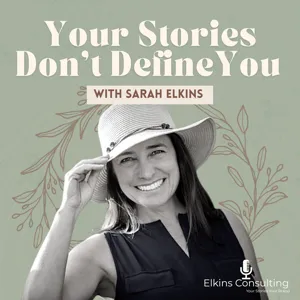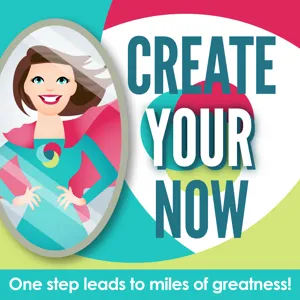Podcast Summary
The Decline in Happiness in America since the 1970s: Marriage is a significant factor in happiness in America, with married individuals being over 30 points happier than the unmarried. The study also shows that female happiness has declined since the 1970s, and there has been a significant increase in happiness among black Americans since then.
Bill Simmons' podcast, which is the most downloaded sports podcast of all time, offers a wide range of guests and topics three times a week. The podcast is available on Spotify, and this episode is sponsored by Indeed and Canva. Indeed is a hiring platform that helps employers connect with candidates faster, while Canva is a presentation tool that uses AI to create stunning visuals. The episode's main topic is the decline in happiness in America since the 1970s, as evidenced by the General Social Survey. The research shows that overall well-being in America remained stable until 2000, but since then, happiness has taken a significant dip. One intriguing finding from the study is that marriage is the most significant factor in happiness in America. Married Americans are more than 30 points happier than the unmarried. Other factors, such as income and race, also play a role in happiness levels. The research suggests that female happiness has declined since the 1970s, and there has been a significant increase in happiness among black Americans since then. Overall, the study highlights the importance of marriage in contributing to happiness in America.
Marriage and happiness: Cause or effect?: Married people report being happier than unmarried people, but it's unclear if marriage causes happiness or if happier people are more likely to get married. Social connections, including marriage, are essential for happiness, but the decline in happiness in America may be due to a lack of social connections rather than the absence of marriage itself.
The relationship between marriage and happiness is complex, and it's not clear if marriage causes happiness or if happier people are more likely to get married. A study using data from the General Social Survey found that American happiness has generally declined in the last 50 years, and married people report being happier than unmarried people. However, the definition of happiness and its importance have changed over time, making it challenging to compare happiness levels across different generations. Economist Sam Peltzman's analysis of the data suggests that the happiness gap between married and unmarried people is significant, but it's unclear if marriage is the cause or the result of happiness. Harvard Study of Adult Development researchers Bob Waldinger and Mark Schultz, who have studied happiness for decades, join the conversation to provide insights into the role of social connections and social fitness in well-being. They suggest that social connections, including marriage, are essential for happiness, but the decline in happiness in America may be due to a lack of social connections rather than the absence of marriage itself.
Marriage leads to greater happiness: Married individuals are happier due to emotional and practical benefits, but correlation doesn't always mean causation
Marriage significantly contributes to overall happiness. According to the study analyzed by Pelsman, married individuals are happier than those who are not married. The reasons for this include the emotional intimacy and security provided by a spouse, as well as the practical benefits such as reminders to take care of oneself. However, it's important to note that correlation does not necessarily equal causation. While marriage may provide happiness, it's also possible that happier individuals are more likely to get married. Regardless, the study highlights the importance of close relationships in promoting well-being.
Marriage and happiness: Causation and correlation: Marriage may confer emotional and financial benefits, but selection bias and confounding factors can complicate the relationship between marriage and happiness. Close relationships contribute to happiness, and marriage is unique in providing a legally binding commitment to a close friend.
Marriage and happiness may be connected in a complex way, with both causation and correlation playing a role. While there may be selection bias and confounding factors, such as job success or general competence, marriage may also confer emotional and financial benefits. Additionally, close relationships, including friendships and family, can also contribute to happiness. It's important to note that marriage rates are becoming less equal across income levels, making it a potential luxury product for high-income individuals. Furthermore, marriage is the only legal institution that encourages intimacy and provides a legally binding commitment to a close friend, offering unique benefits beyond platonic friendships.
The Importance of Social Connections and Supports for Relationships: Strong social connections contribute to overall well-being and relationship longevity, but modern times lack supportive institutions, leaving individuals without necessary resources to build and sustain meaningful relationships. Emphasis on 'social fitness' highlights the importance of strong networks for happiness and well-being.
Social connections and supports play a crucial role in the stability and longevity of relationships, be it marriage or friendship. Historically, marriage was more than just a legally binding contract, it was an arrangement between families that provided a network of support. However, in modern times, with fewer social structures in place to support long-term connections, many people struggle to maintain relationships due to financial or job insecurity. The lack of these supportive institutions can leave individuals without the necessary resources to build and sustain meaningful relationships. The concept of "social fitness" emphasizes the importance of strong social connections for overall well-being. While some institutions, like marriage and religion, can provide a degree of stickiness and long-term commitment, others, such as work, may not. The freedom to easily move from one job or social circle to another can be a double-edged sword, as it may prevent us from fully enveloping ourselves in a supportive network that can lead to long-term happiness and well-being. The absence of such networks can result in a lack of social fitness and potentially hinder our ability to live fulfilling lives.
Finding opportunities for proximity and proclivity: Research shows that forming new connections requires being in the same place or situation (proximity) and having shared interests or passions (proclivity). Marriage and parenthood can provide important opportunities for both.
Building and maintaining meaningful connections in modern life can be challenging due to the increasing value placed on freedom and choice over allegiance and connection. However, research suggests that forming new connections involves proximity (being in the same place or situation) and proclivity (shared interests or passions). Marriage can also play a significant role in providing important connections and intimacy, especially in adulthood. Additionally, becoming a parent can serve as a powerful proclivity that helps us connect with new networks of people. So, whether it's through volunteering, joining a club, or having a child, finding opportunities for proximity and proclivity can help us build and deepen connections throughout our lives.
Building intentional connections during times of change: Committing to relationships and intentional practices can provide constraints leading to personal growth and a sense of community amidst the infinite choices of modern life
During times of great change and fluidity in life, such as becoming a new parent, it's important to be intentional about building connections and relationships. These relationships can provide a sense of community and help combat feelings of isolation. Soren Kierkegaard's observation of modernity highlights the problem of having too many choices and feeling lost in the infinite possibilities. Committing to something, like a marriage or having a child, can provide constraints that lead to personal growth and richness in life. Intentional connections and commitments serve as an answer to the problem of being lost in the infinite. Bob's example of Zen practice further emphasizes the importance of committing to something and finding growth within those constraints.
Finding happiness through meaning and purpose in constraints: Constraints and commitments can lead to greater happiness and fulfillment in life, despite the stress and anxiety they bring.
While freedom can bring anxiety, finding meaning and purpose within constraints can lead to greater happiness and fulfillment in life. Kierkegaard's idea of anxiety as a dizziness of freedom aligns with the observation that the infinite choices presented to us in today's world can lead to increased anxiety. However, making big commitments and taking on responsibilities, despite the stress and anxiety they bring, can also lead to immense joy and meaning. The concept of happiness is multifaceted, and while moment-to-moment experiences of happiness are important, having a sense of meaning and purpose in life is crucial for long-term happiness. The study that inspired this conversation focused on those who were "pretty happy," but perhaps being "pretty happy" is a worthwhile goal as well. In summary, finding happiness and richness in life may be less about reaching a magic number or a specific goal, and more about discovering the magic in the constraints and commitments we make.
Money can't buy happiness beyond a certain point: Beyond meeting basic needs, happiness comes from connection and meaning, not just making more money
While money can help us meet our basic needs and buy us out of deprivation, leading to increased happiness up to a certain point, seeking happiness solely through making more money beyond that point is unlikely to be effective. Once our basic needs are met, other factors like connection and meaning become more important for our overall happiness. Money can also provide a sense of security and control, but it may not necessarily lead to increased happiness. Instead, it can help reduce stress and challenges by providing more options for dealing with unexpected events. However, it's important to note that buying material possessions, such as big houses or private jets, may not lead to lasting happiness and can even contribute to feelings of loneliness or aloneness. Overall, it's essential to focus on building meaningful relationships and finding purpose in our lives to truly increase our happiness.
Experiences vs Material Possessions for Long-Term Happiness: Experiences deepen social connections and last, while material possessions lead to less happiness and comparison. Invest in experiences for lasting impact on well-being.
While income can be used to buy material things or experiences, research shows that experiences, particularly those involving social connections, contribute more to long-term happiness. Experiences, whether with existing relationships or new ones, have the potential to deepen and last, providing opportunities for bonding and shared memories. Conversely, material possessions often lead to comparison and less happiness. The ability to discuss and share experiences is a key factor in their lasting impact on our well-being. Planning and anticipation of experiences can also add to their value. Ultimately, the most meaningful use of discretionary income is on experiences and activities that foster social connections and continue to benefit us beyond the initial encounter. This stands in contrast to the constant messages in advertising that material possessions will make us happier.
The importance of social connections for happiness and effective co-parenting: Advertisers use images of people together to sell products as happiness comes from being with others. Prioritize relationships with partners for long-term happiness and effective co-parenting. Self-care and rest are also crucial for being a good parent.
Happiness and positive experiences are often connected to social connections with others. Advertisers understand this and use images of people together to sell their products. Similarly, we savor experiences not just for the moment, but for the connections and memories they provide. For new parents, prioritizing the relationship with their partner is crucial for long-term happiness and effective co-parenting. Self-care and rest are also essential for being a good parent. Bob O'Connor, a father and marketing expert, shared these insights during a conversation about advertising and the importance of social connections. He emphasized the role of advertisements in conveying the idea that happiness comes from being with others and suggested that parents prioritize their relationships to be better partners and parents.
An epic tale of a ruthless king and a young ape's struggle for the future: Build empires, fight for the greater good, and never lose hope for a better future, regardless of species.
The upcoming movie "Kingdom of the Planet of the Apes" promises an epic tale of a ruthless king and the struggle of a young ape for the future of apes and humans. The story unfolds in the IMAX format on May 10th and in theaters everywhere. This film appears to offer a thought-provoking narrative about building empires and the importance of fighting for the greater good, regardless of species. It's a reminder that even in the face of adversity, there's always hope for a better future. So, mark your calendars and get your tickets now to be a part of this thrilling journey.










